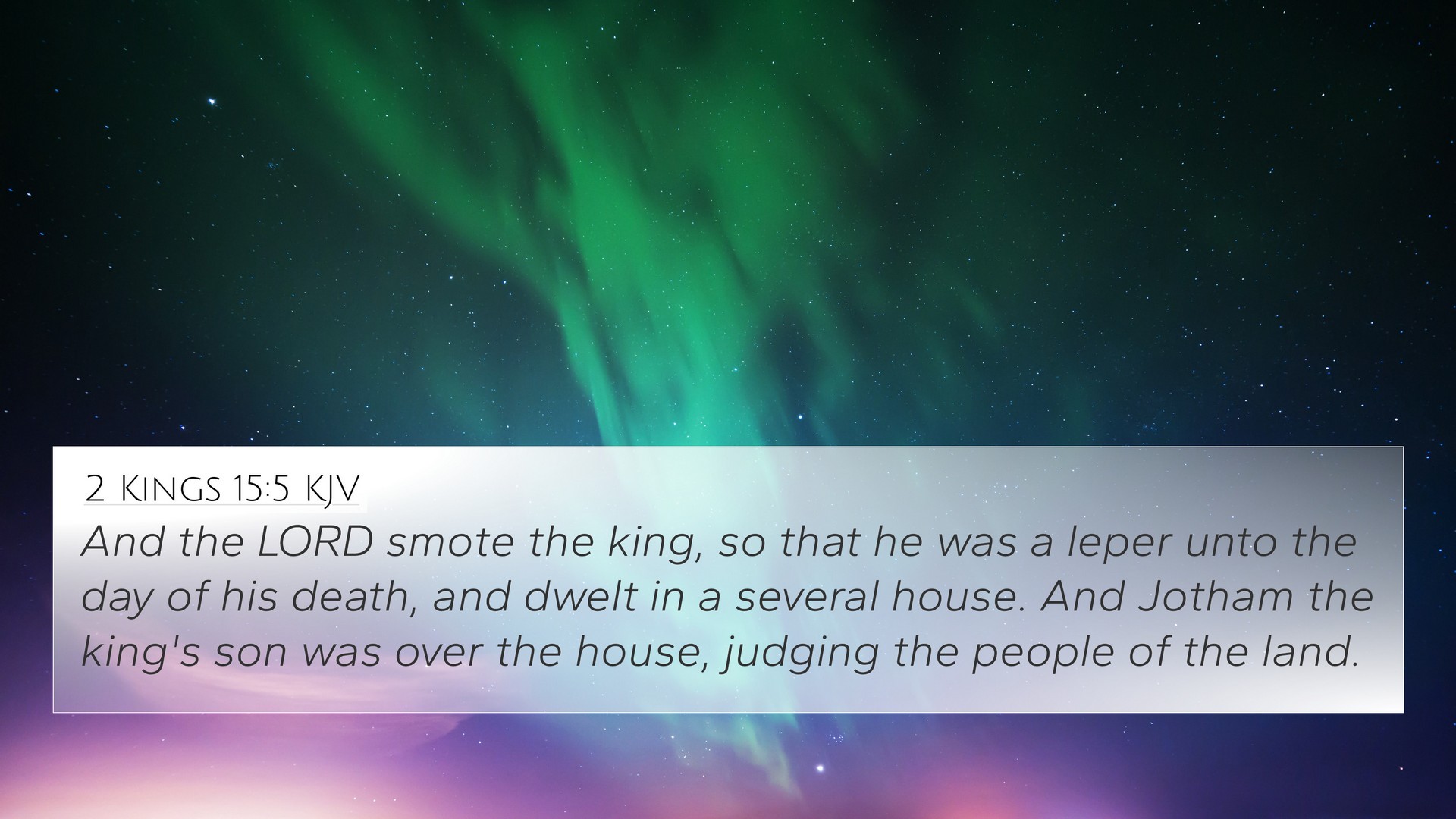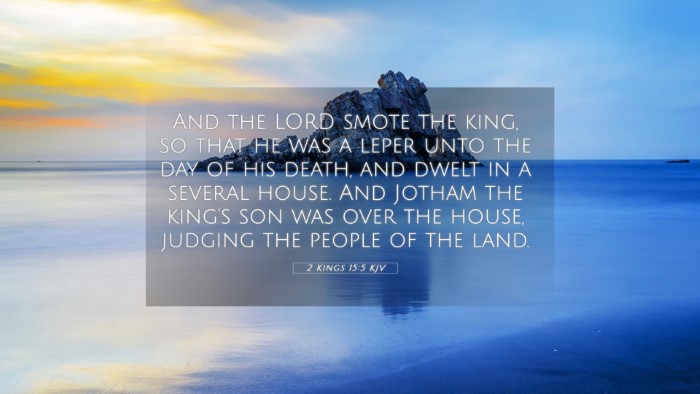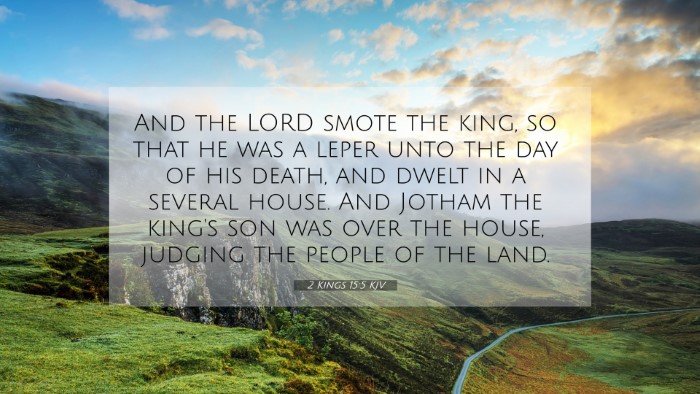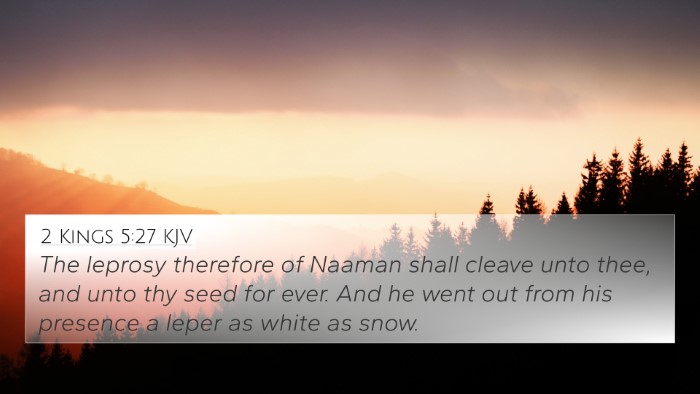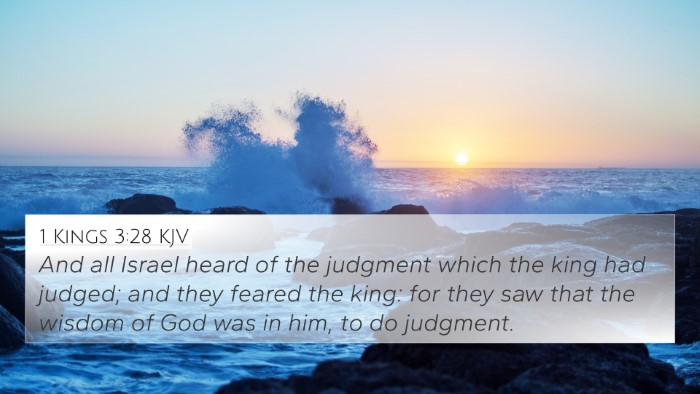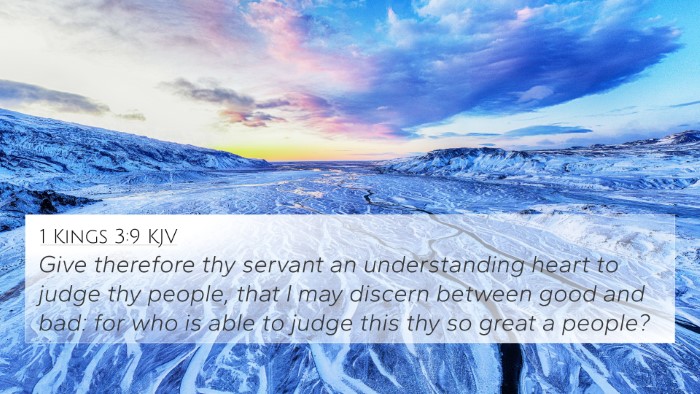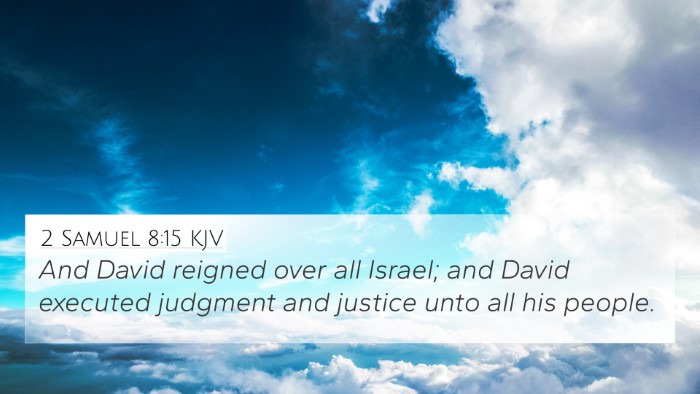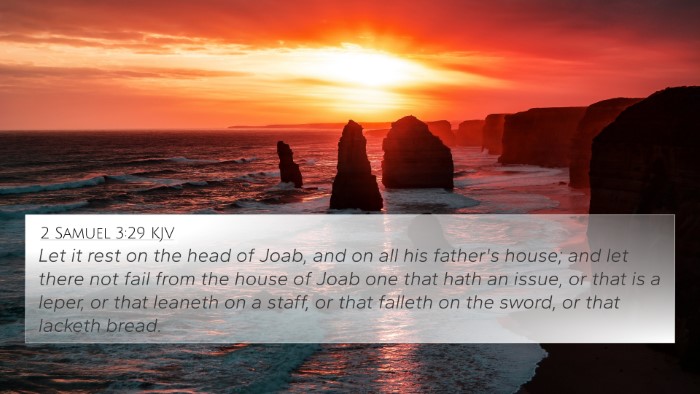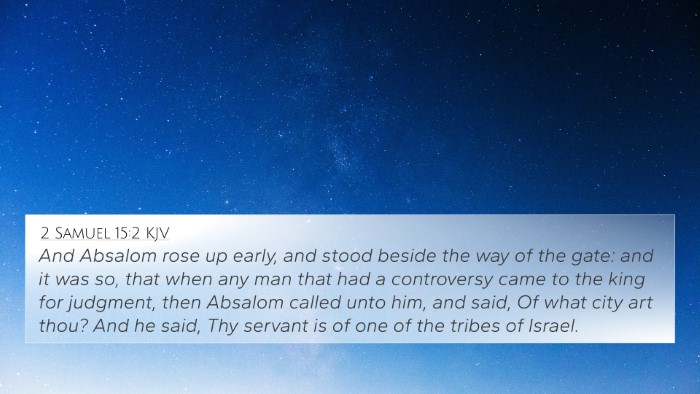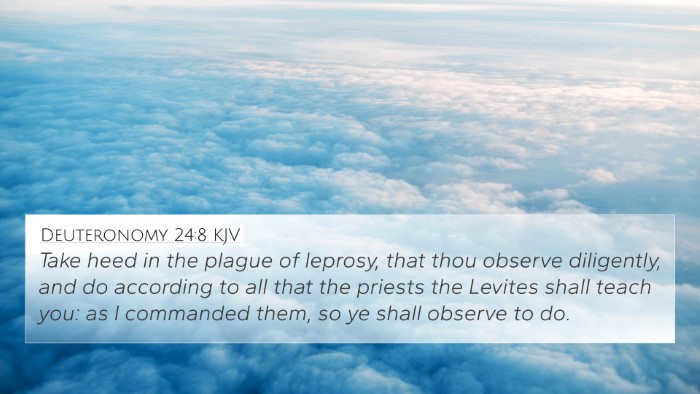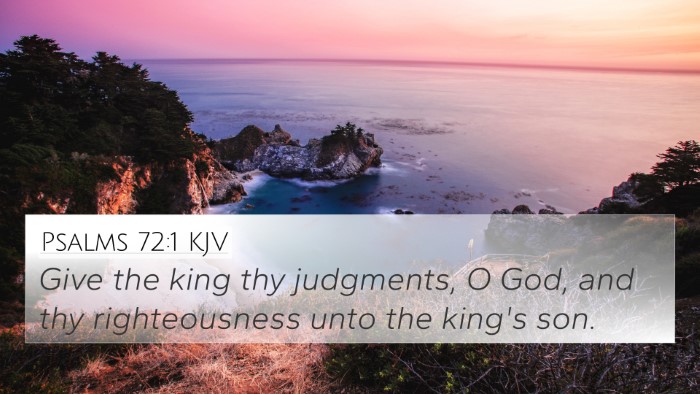Understanding 2 Kings 15:5
Bible Verse: 2 Kings 15:5
This verse states: "And the LORD struck the king, so that he was a leper unto the day of his death, and dwelt in a several house." This passage highlights the severe consequences of King Uzziah's disobedience to God.
Context and Summary
The narrative of 2 Kings 15 focuses on the kings of Israel and Judah during a tumultuous period. King Uzziah of Judah is notable for his accomplishments, but his arrogance leads to dire consequences.
Commentary Insights
Matthew Henry’s Commentary
Matthew Henry elucidates that King Uzziah's prosperity caused him to become prideful, ultimately leading him to unlawfully burn incense in the temple, an act reserved for priests. His leprosy symbolizes divine judgment for this transgression. This illustrates God's holiness and the importance of following His ordinances.
Albert Barnes' Notes
Albert Barnes notes that Uzziah's physical affliction was not just a punishment but served as a public testament to the importance of reverence for God. The mention of dwelling in a separate house indicates social and ceremonial uncleanliness due to leprosy, halting his further rule over Judah.
Adam Clarke’s Commentary
Adam Clarke emphasizes the grievous nature of Uzziah's sin and the severity of leprosy, which represented a spiritual as well as a physical separation from God's people. The fact that he was leprous until his death underscores the long-lasting effects of sin and the significance of repentance.
Key Themes
- Divine Judgment: The consequence of Uzziah's sin illustrates how disobedience leads to severe repercussions.
- God's Holiness: Uzziah’s act of burning incense represents a disregard for God's holiness, which is a central theme in the scriptures.
- Separation: His leprosy symbolizes both physical and spiritual separation from the community and God.
Bible Cross-References
This verse connects with several relevant Scriptures, enhancing its interpretation:
- Leviticus 13:45-46: Outlines the laws concerning leprosy and the consequences of being unclean.
- Isaiah 6:5: Reflects on a vision where Uzziah may have seen the holiness of God, evoking his awareness of sin.
- 2 Chronicles 26:16-21: Details Uzziah’s transgression and further insights into his life and reign.
- Numbers 4:15: Discusses the duties of the priests, contrasting Uzziah’s infringement.
- 1 Peter 5:5: Provides a New Testament exhortation on humility, illustrating the importance of humbling oneself before God.
- Psalm 38:3: Describes the consequences of sin, relating to the effects of guilt and separation from God.
- James 4:6: "God resists the proud, but gives grace to the humble," which is echoed in Uzziah's downfall.
Thematic Connections
- Pride and Fall: The theme of pride leading to downfall is recurrent in the Bible, seen with figures like Nebuchadnezzar (Daniel 4).
- Faithfulness to God: Contrast Uzziah’s failure with faithful leaders, such as David, who sought God earnestly.
- Consequences of Sin: Similar examples can be found throughout Scripture where the disobedient suffer consequences, like the Israelites in the wilderness (Numbers 14:29-30).
Conclusion
2 Kings 15:5 serves as a cautionary tale about the dangers of pride and disobedience to God. The references and connections drawn from various scriptures emphasize the vital importance of humility and reverence in one’s relationship with the divine.
As believers, it encourages a diligent study of the Scriptures, utilizing tools for Bible cross-referencing to understand the interconnectedness of God’s message. This verse encourages reflection on personal conduct and the unwavering truth of God’s grace in our lives.
